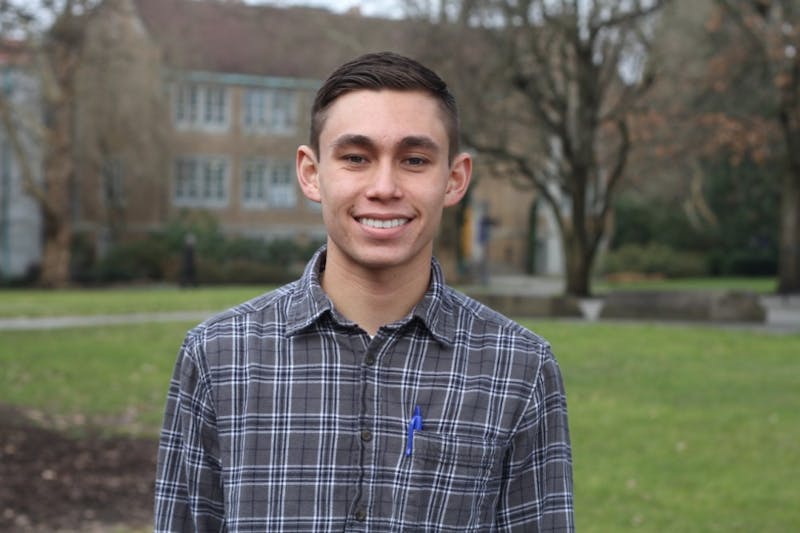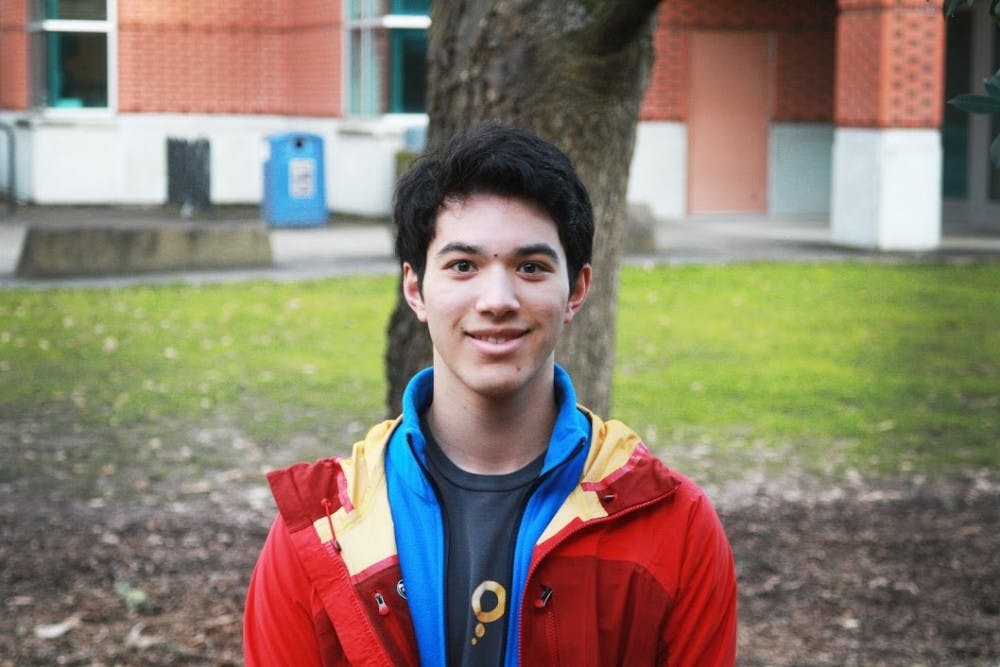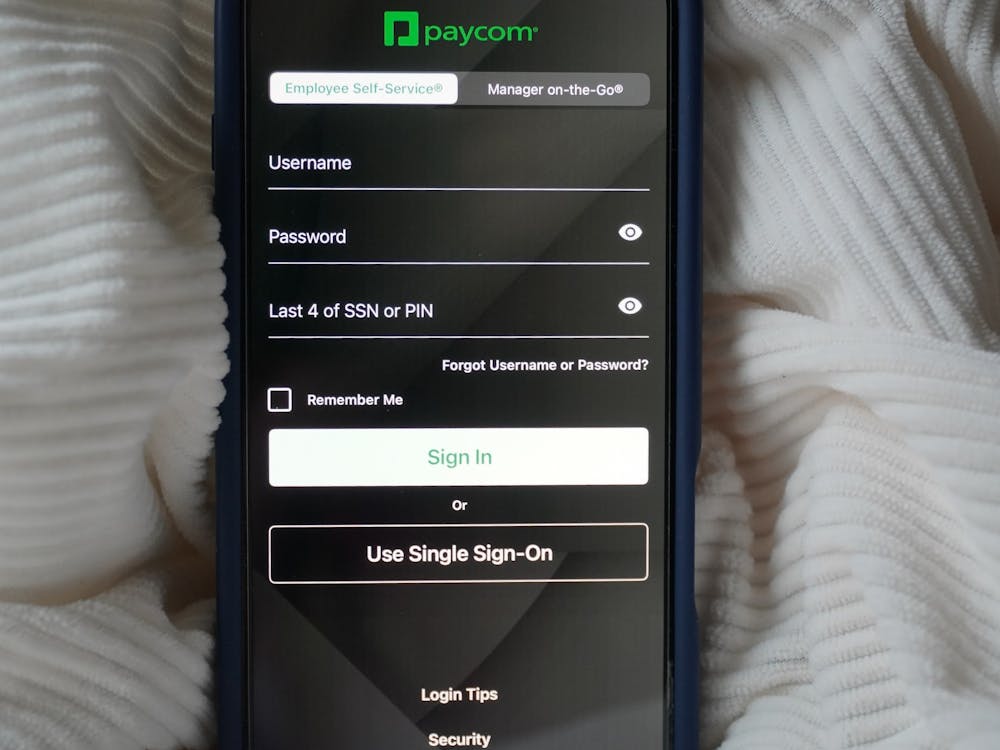On the day of Donald Trump’s inauguration, Tyler Cuff hung a large blue flag emblazoned with “Trump” outside the window of his Haggerty-Tyson apartment. Though Cuff said the flag was displayed mostly to “troll” passers-by, it also conveyed his support for the new president on a campus where many students hold differing views.
Cuff, a junior mechanical engineering major, supported Bernie Sanders during the primaries, as he was drawn to the senator’s desire to change the status quo. However, in the presidential election, Cuff voted for Trump mostly because he didn’t want to see Hillary Clinton win the presidency, and also because he appreciates Trump’s unabashed personality.
“What he does that I do like is that he is one crazy person,” Cuff said. “Before this election, myself and most people that I know were completely ignorant of what’s going on in Washington, D.C. Trump has managed to awaken America up to what’s going on politically.”
Junior theology major Koa Bartsch also is excited for Trump’s presidency, though he didn’t cast a vote for him. Bartsch, who says he’s generally more conservative, said Trump was his last choice during the primaries, and he voted for the Constitution Party’s Darrell Castle in November. Clinton’s email and Benghazi controversies, as well as her stance on abortion, deterred Bartsch from voting for her.
Bartsch, a member of ROTC, appreciates the president’s aim to increase United States military presence in the Middle East to counteract what Bartsch sees as the decline of America’s military power in recent years. He is also confident in Defense Secretary James Mattis’ ability to handle crises in the Middle East.
But Bartsch did express concern over other nominees for cabinet-level positions, such as Betsy DeVos, nominated for Education Secretary, and Scott Pruitt, nominated to lead the Environmental Protection Agency.
Cuff believes all of Trump’s cabinet appointments are qualified.
“Trump knows what he’s doing when he’s appointing people,” Cuff said. “That seems like a standard business decision that he would have to make.”
Cuff also appreciates Trump’s plan to lower taxes and his desire to stem what Cuff thinks is a growing tide of “political correctness.” However, both Cuff and Bartsch disagree with the president on several of his central campaign promises, and they both believe he needs to ease up on his incendiary rhetoric.
“He’s imprudent with his words, and communicating through Twitter isn’t exactly the best way to communicate, especially as president,” Bartsch said. “He doesn’t have restraint with his words.”
Cuff concurred, saying that hopefully Trump will temper his rhetoric because he no longer has to campaign and should instead focus on implementing his campaign promises.

Both Bartsch and Cuff also disagree with Trump’s plan to deport undocumented immigrants as they both consider it immoral and also don’t want to see his border wall plan enacted.
“It’s important to have protected borders, but I think a policy of amnesty is the best way to go about it ... and to allow (currently undocumented immigrants) to integrate into the United States,” Bartsch said. “I think (the wall is) ridiculous mainly because it can’t prove to be an effective way of keeping people out.”
Cuff also cited the financial expenditure issue the wall presents.
“(Deporting undocumented immigrants) is also going to be massively expensive and difficult,” Cuff said. “Building a wall is not going to be a solution.”
Though they disagree with Trump on certain issues, Bartsch and Cuff do support him, something they say sometimes causes them discomfort on a college campus.
“I generally consider myself more conservative, but it’s definitely a little hard, especially in classes, voicing a conservative opinion,” Bartsch said. “I don’t want to be singled out in class as the person who is conservative.”
Nevertheless, Bartsch wants to dialogue with people who hold opposing views as the nation enters a new era.
“It’s important to look at the reasons why people believe things, and it’s important for those people to articulate their viewpoints and back up their viewpoints and show others, ‘Here’s why I believe this, and I want to understand why you believe that,’” Bartsch said.
--
Editor's Note: Have thoughts or feelings on this subject that you want to share? The Beacon wants to hear from you. Send your letters to the Editor to upbeacon@gmail.com.








